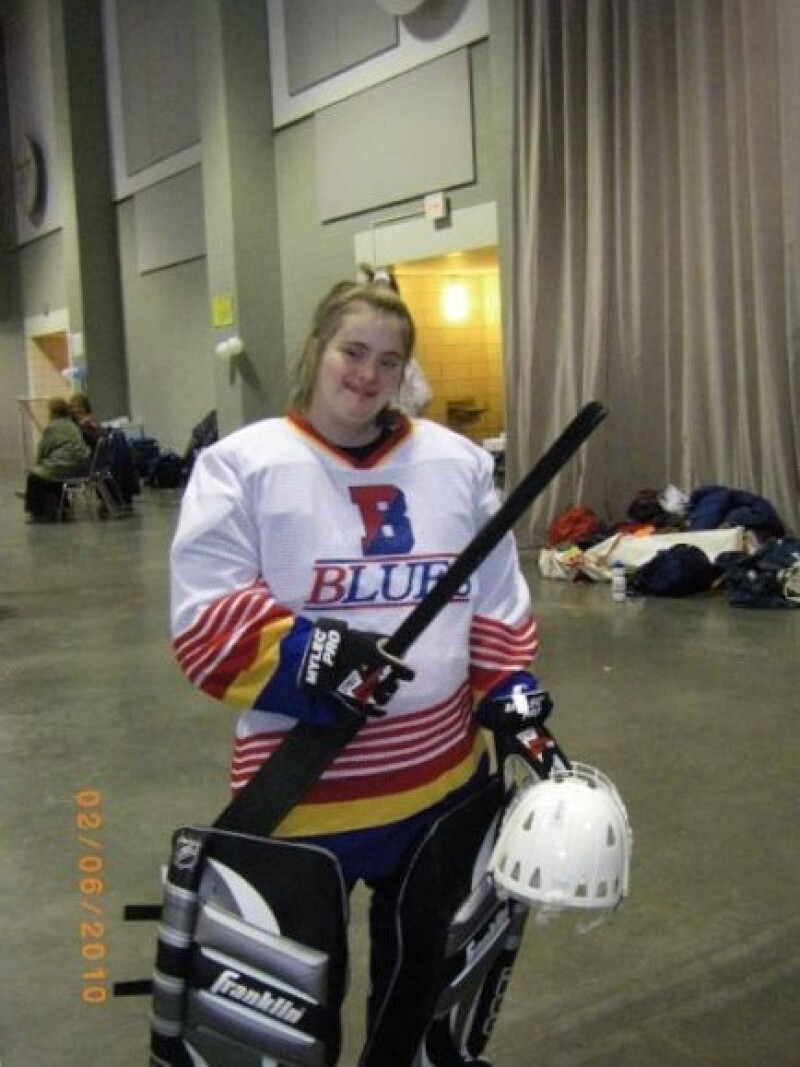For as long as Kayla McKeon can remember, she's been a self-advocate for the rights of people with disabilities, both as an individual and as the first registered lobbyist with Down syndrome. However, none of that would have been possible without the impact of Special Olympics. "I have always been a self-advocate and I love being a self-advocate, but Special Olympics gave me a bigger platform for my voice," McKeon says with a spark in her voice.

McKeon began training and competing with Special Olympics New York at 13 years old. She’s competed in many sports, including soccer and floor hockey and even competed at the 2011 Special Olympics World Games in Athens, Greece, winning a bronze and silver medal in bocce.
But perhaps Special Olympics’ biggest impact on McKeon came not on the field of play, but rather in the halls of a completely different arena.
"Every year Special Olympics has Hill Day where athletes from every state converge in Washington, D.C. to meet with representatives and ask them to support Special Olympics," McKeon says about Hill Day. Because of her regular attendance and how quickly she took to the work, she says, "I always say self-advocacy really found me."
And that part may be true. After giving a motivational speech at a Special Olympics New York event, she realized that her words could have a strong impact and found her life’s passion for spreading the message of inclusion and for advocating heavily for the rights of people with disabilities.

"The Americans with Disabilities (ADA) is very important to me because being a self-advocate, being able to have a voice and speaking up for those who aren't able to have that voice is very important," McKeon says, also adding, "we want accessibility in all areas of life, inclusion in the workforce, diversity in the community, and we want the American dream."
And her journey is the perfect example of living that American dream.
Years ago, a chance meeting with Representative John Katko set McKeon on a path that would impact her life dramatically. At a campaign event, Katko tried in vain to toss a promotional t-shirt to McKeon but was able to hand her one after the event.
Months later, after thinking they’d never see each other again, the two would cross paths at a charity event and Rep. Katko was shocked to see that McKeon handed him a business card with the words “motivational speaker” on it. He knew immediately he needed to bring her on the team and when he was elected, one of the first things he did was call McKeon to give her a job in his office.
"Prior to my position at the National Down Syndrome Society (NDSS), I interned for the congressman and my typical day looked like office work and filing," McKeon says. "That's when I attended an event with the congressman, and I was offered my job as a lobbyist."

“Her job is to be an advocate,” Katko says about McKeon’s role. “She goes into congressmen and senators offices and advocates for issues related to the NDSS.”
McKeon has taken on that level of responsibility without batting an eye and continues to break barriers for those who are differently abled. In addition to her work as a lobbyist and as the manager of Grassroots Advocacy with the NDSS; she is currently a student at Onondaga Community College and has a driver's license.
McKeon has seen monumental change because of her advocacy efforts, including people with disabilities "being able to save money and keep benefits” through ABLE accounts. McKeon takes a lot of pride in the success of the Marriage Access for People with Special Abilities Act (MAPSA), which would protect the Social Security benefits should two individuals with disabilities get married. She says, "I'm really hoping to make it a law by the time I find a boyfriend," with laughter in her voice.
Her life experience as an individual with an intellectual disability makes her uniquely passionate about the legislation she backs. But it also makes her extremely effective.
"From a self-advocate standpoint, it's harder for them (lawmakers) to say no to someone like me," McKeon says. "I would like to see them meet us halfway and see their agreement."
Ahead of this year's 31st anniversary of the passage of the Americans with Disabilities Act, a landmark piece of civil rights legislation that transformed the lives of millions of people, McKeon understands the barriers still faced by people with disabilities all too well.
“There’s a lot that's going on with ADA, but there's always a need for more," McKeon says.
More than three decades since the ADA started changing the lives of those with intellectual disabilities, self-advocates like McKeon are leading the charge to make sure those changes continue to evolve. Because of the work that McKeon and others throughout Special Olympics are doing, the country will continue to become more inclusive and accessible.










